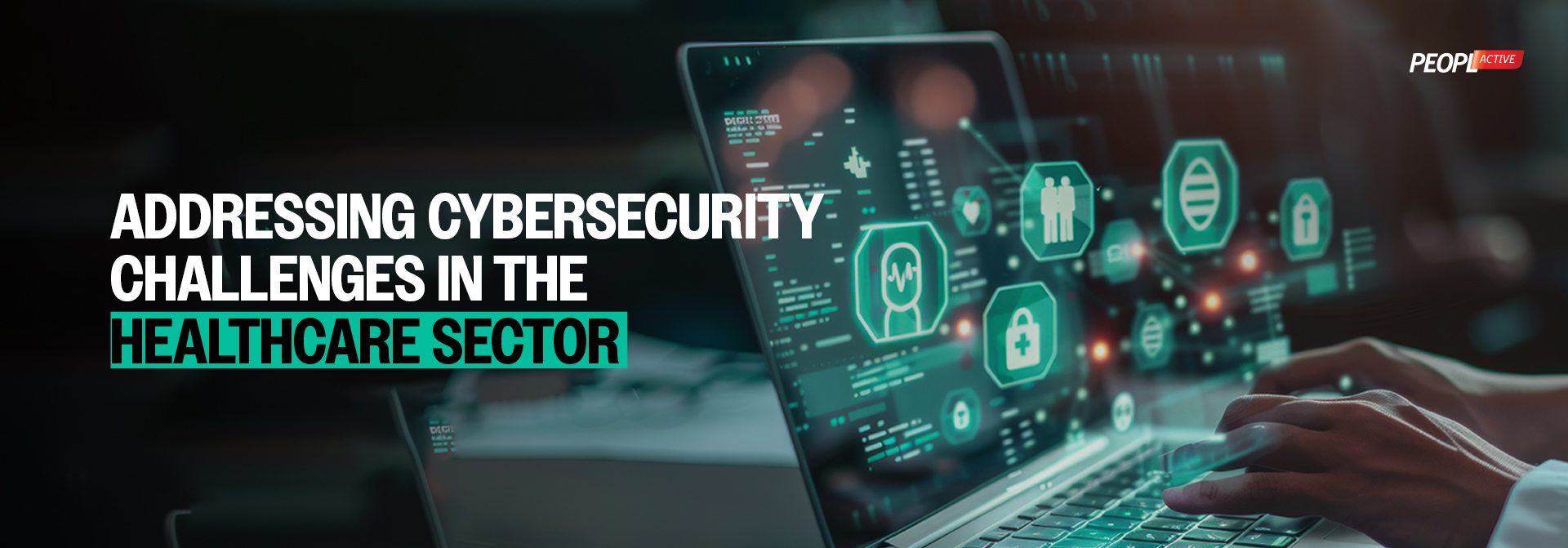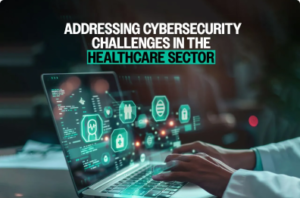

Addressing Cybersecurity Challenges in the Healthcare Sector
As a hospital owner, you have built your business into a pillar of trust and excellence for patients. It’s an institute where patients turn for reliable and compassionate care. However, one fine day you find yourself in an unexpected situation, as you get a call from your hospital that operations are down. The reason? A cyber-attack that has crippled your hospital. What is overlooked as a minor glitch in the network has turned into a full-blown attack that has made your critical systems to fail, patient records locked, and the trust to be slowly fading away.
A situation that could have been dealt with easily if you had a healthcare cybersecurity solution is now out of your hands. We are living in an era where digital threats are as troublesome as physical threats. As hospital owners, you need to understand that if you don’t take this situation seriously, nothing can stop your hospital from crumbling down. Let us explore the most-pressing cybersecurity challenges that could threaten your institute, your data, and your reputation. We shall also explore the solutions on how to tackle them.
Rapid Technological Advancements
Healthcare technology is advancing at an unprecedented speed, and if you do not keep up, you might lose your patients to your competitors. From Electronic Healthcare Records (EHR) for improved patient record management to AI-based diagnostics, all these advancements are taking healthcare in a new era. But, with every new technological advancement comes a new set of security headaches.
Challenge: Integrating new technology in the existing system while keeping security intact. It is the same as changing a car tire while it is running on the track, sounds exciting but it is risky.
Solution: An ideal solution in this situation is to implement a concept known as security by design during technological upgradations. Assess and select technological equipment and softwares before implementing them into existing systems. You can also hire a cybersecurity engineer that can conduct these assessments for you.
Resource Constraints
Many healthcare organisations operate on a limited budget when it comes to cybersecurity. As a hospital owner, you need to prioritise both patient care and cybersecurity when it comes to your institute. Even though there is an increase in the security budget in many institutes, there remains a huge gap that needs to be addressed.
Challenge: Balancing cybersecurity investments along with other operational costs to maintain continuity of care. On one hand, you are dealing with day-to-day challenges that hamper your operations and on the other hand you are faced with the unknown enemy who sits in the dark and is trying to bring down your hospital.
Solution: Investing in a healthcare cybersecurity solution that addresses your most critical and vulnerable areas based on a gap assessment. Healthcare institutes need to understand when they don’t compromise on their equipment that save patients’ lives, why compromise on digital defences? To not burn a hole in your pocket, they can partner with a healthcare cybersecurity company that can boost their defences without much spending.
Data Privacy and Compliance
Data privacy and compliance remain another area that is often posing as a challenge to healthcare institutes. The reason? Unawareness regarding these cybersecurity compliances which results in regulatory and legal fines. As per The Global Healthcare Cybersecurity Study 2023, 28% of healthcare organisations globally had to pay regulatory fines due to non-compliance of security standards.
Challenge: Adherence to data protection and compliance regulations while maintaining the operational continuity. The top management needs to understand that adhering to compliance is non-negotiable, or they might find themselves being chased by regulatory bodies.
Solution: Staying up to date with the regulatory landscape and adhering to the standards. Think of these as the best practices that keep you away from penalties and fines. Otherwise, it would look like you are colluding with the criminal. You want to be on the good side of the regulatory bodies rather than being on their hitlist. You can partner with a healthcare cybersecurity consultant to stay up to date with compliance regulations.
Evolving Threat Landscape
Cyber criminals are evolving their attack tactics, and so should your digital defences. If you implement cybersecurity once and leave it as it is, you are making a huge mistake. With the introduction of AI, the threat actors are using sophisticated tactics to take down hospitals.
Challenge: Ensuring the hospital defences are up to date while keeping up with the evolving cyber threats. You cannot mitigate a threat unless you know it!
Solution: Investing in advanced threat-intelligence and threat protection to understand the threat landscape is the first step to mitigate threats. Furthermore, conducting regular assessments and penetration testing into your network and devices would help you discover new vulnerabilities and patch them before they can be exploited. These processes can be time-consuming and require a dedicated resource. In that case, you can even hire a cybersecurity engineer to continuously update your security.
The Human Factor
It might sound like a naive challenge for hospital owners who don’t know about it. However, in most of the cyber incidents, human error is the reason cyber incidents occur. As per a study by IBM, human error is responsible for 95% of cyber incidents.
Challenge: Reducing the human error or the human factor in cyber incidents. Most of the times the staff is unaware of what is a cyber threat or how to identify one. One click, and you just invited an invader to take control of your systems.
Solution: Implementing continuous cyber security training for your healthcare staff to keep them up to date with the threat landscape. What’s the point of having a healthcare cybersecurity solution, if your staff still commits mistakes and invites invaders? Also, training ensures that your employees know how to respond in case of a cyber incident. You can even partner with a healthcare cybersecurity company to train your employees.
Legacy Systems
Outdated systems are again one of the challenges that have been causing the downfall of healthcare institutions against cyber threats. As per The Global Healthcare Cybersecurity Study 2023, in 42% of cyber-attacks, the IT systems are affected and in 30% of cases, medical devices are affected. These numbers highlight the need for robust cybersecurity measures for these systems.
Challenge: Securing outdated systems while managing the complexity of upgrading them. If they cannot be upgraded, the systems must be replaced. So, the cost factor also needs to be considered.
Solution: As healthcare owners, you must first conduct a meeting with your IT personnel as to what systems they are using presently and assess them in terms of security. If they need an upgrade, then you must hire a cybersecurity engineer to help you understand the cyber risk associated with each system. Next, the systems with highest risk should be updated first and a phase-wise update based on the risk should be carried out for all systems.
The Road Ahead:
The cyber challenges in healthcare are evolving in both criticality and complexity. As a healthcare owner, you should prioritise cybersecurity before your institute takes a blow due to any of these factors. Underestimating cyber-attacks is like ignoring a ticking time-bomb; sooner or later it will blow in your face. With a holistic healthcare cybersecurity solution, you can tackle these challenges and outsmart the threat.
But, installing the solution is not the answer, it’s just a beginning. You might have to continuously upgrade the system to identify and detect threats, ensure compliance, and so much more. Having a partner, that handles all these hassles for you while you focus on what you are best at is an ideal situation. And who better than the Anti-Threat Cyber Squad! We make sure you don’t compromise on the security front when it comes to the digital landscape. Get in touch with our experts to understand our services in detail.














